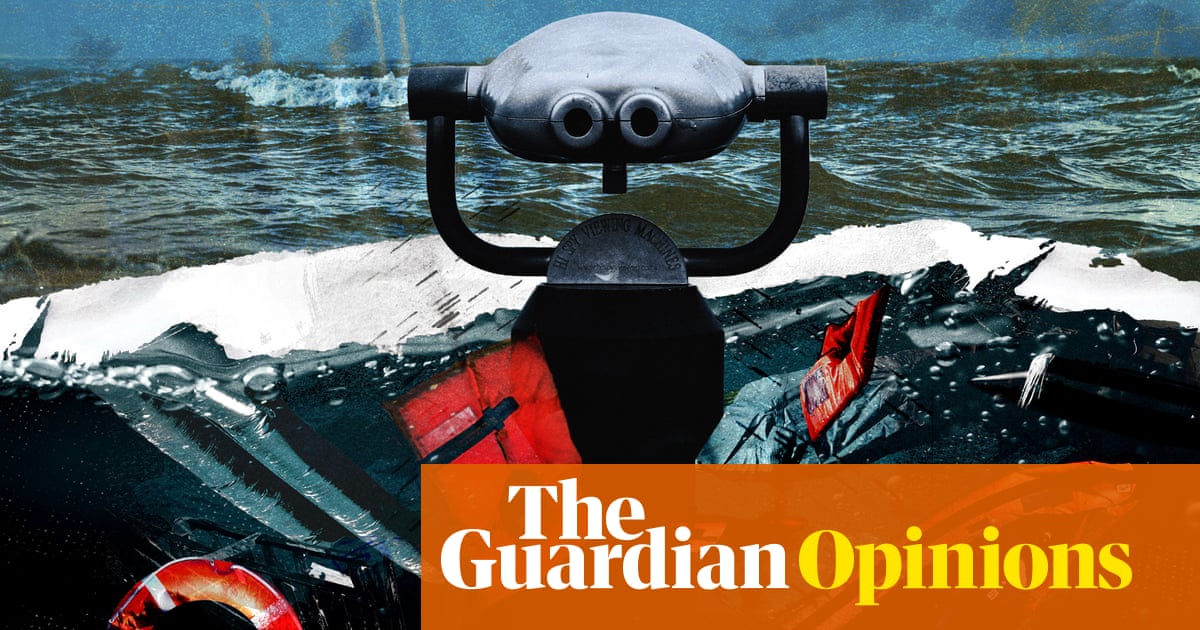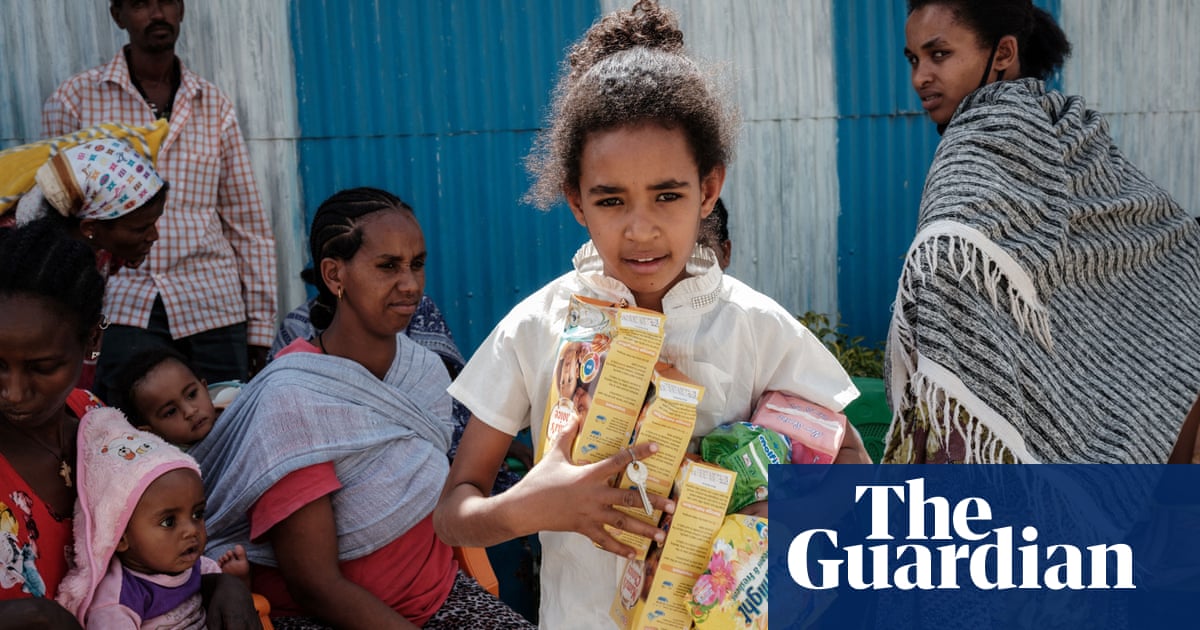
What’s an acceptable number of dead people in European waters? What about dead children? I’m asking largely about healthy young people, albeit exhausted ones. Migrants, who have braved long, terrible journeys, often experiencing horrific violence and terror.
So how many should we write off as justifiable collateral damage in our war against … what, exactly? There is no war except with ourselves: it’s a culture war. The cause is “strong borders”, but strong against what? Despite the rhetoric, this not an invasion. If the strong borders are to protect our economy – well, these are young, fit workers who could boost our economies if we actually let them work.
The question of what number of deaths is acceptable is pertinent because we are actively pursuing policies that increase these avoidable deaths. So far this year, more than 2,000 people are estimated to have drowned in the Mediterranean in an attempt to reach European shores. About 650 people died when a single overcrowded boat sank off Greece in June. Just 104 were rescued.
This month, 41 passengers died off the coast of Italy, 63 perished trying to reach Spain, and at least six people died in the Channel off the French coast, while trying to reach Britain in a small boat. The number of deaths rises as we normalise them. Will we reach a point of revulsion, where the public can no longer tolerate such tragedy, or will such a threshold rise with the deaths and the diminishment of our humanity?
It is almost exactly eight years since the image of a drowned toddler washed up on a Mediterranean beach shocked the world into compassion. Alan Kurdi, a two-year-old, escaping war in Syria, had been attempting to reach Europe with his family when their small boat capsized on 2 September 2015. But the humane speeches from leaders proved a temporary reaction and, although the number of refugees seeking safety in Europe has fallen far below those at the height of the Syrian conflict, border policies have hardened and leaders have grown ever more hostile in speech and actions.
We have allowed the political discussion around migration to be dominated by populist party sloganeering and driven by the sales agenda of tabloids with confected campaign stories. It has resulted in a swath of brutal and costly policies in Europe and north Africa, where people at their most vulnerable are tormented with impunity – and in no safe routes. In the UK, where mismanaged and delayed processing of asylum claims has created a backlog of more than 136,000 applicants who are forbidden to work, hotel housing costs are running at about £2.3bn a year.
Thus riled by his government’s failures, Sunak has declared war on asylum seekers with a barrage of measures from the cruel to the unworkable to the ridiculous. These include last month’s drastic Illegal Migration Act, which torches the universal right of any human from anywhere to seek safety somewhere else on Earth (if that somewhere is Britain), and immigration minister Robert Jenrick’s petty removal of comforting cartoon murals at a detention centres holding traumatised children.
Sunak’s “small boats week” was not a community-awareness event marked by bake sales and fun runs in support of refugees and the RNLI. Instead, there was talk of sending migrants to Ascension Island, a remote rock in the middle of the Atlantic (even more ludicrous than the Rwanda plan), and the spectacle of a serving senior MP, a Conservative party deputy chair, telling asylum seekers to “fuck off back to France”.
Meanwhile, the government pushed ahead with its plans to incarcerate a few hundred people – roughly 1% of those waiting for claim processing – on a densely packed barge off the south coast, despite expert warnings of fire and disease risk and, even more unforgivably, despite the discovery of legionella bacteria in water samples. By the end of Sunak’s special week, the barge’s poor inmates were being hurriedly evacuated again, owing to the undeniably high risk of deadly legionnaires’ disease.
This is performative politics, it is not leadership worthy of this nation, it is not governance fit for this time of true global crises.
When will we look pragmatically at human movement and discuss a workable plan to manage it sustainably? The number of people moving across the world is only going to increase in coming decades, owing to population expansion and global warming, contributing to conflicts, disasters and food shortages that push people from their homes. By one estimate, there are more than 110 armed conflicts going on around the world and yet, in the UK, we receive a tiny proportion of asylum seekers per citizen compared with EU nations, let alone internationally. This is not an immigration crisis – but in the coming decades, it very much could be if we don’t plan today. This year, we’ve seen a taste of the climate chaos that will only worsen, with fires, floods, hurricanes and heat affecting nations on every continent displacing millions of people. In six years, some 2 billion people could be living in places where average temperatures exceed 29C; by the end of the century, this number approaches 4 billion.
This summer, traumatised British refugees arriving in small boats from the wildfires in Rhodes were treated with kindness and generosity by Greek communities when they landed. They were lucky enough to have the papers (and skin colour) to receive asylum. It is in all of our interests to prevent a climate apartheid of safety on our shared planet. Even if we in the UK are not directly affected by extreme conditions, as holidaymakers or residents, we are, by extension, through our globalised human network. For instance, about half of our food is grown overseas, much of it in highly vulnerable areas, thus increasing prices.
As conditions become too extreme, people will have to move. So too will capital, expertise, production, industry … everything will shift in response. The number is not fixed, and we still have plenty of choices. If we want fewer people to move, we need to fund places to adapt, and to rapidly speed our decarbonisation so the push factors aren’t worse. But inevitably people will move. We need an honest discussion about how we manage this movement, in our cities, nationally, and in collaboration with neighbouring nations – most of which are, like Britain, facing a shrinking labour force.
This must be a moment of decision. Do we plan a workable way forward, adapting our border policies to accommodate the reality of this movement? Or do we decide that mass drownings of healthy young people are just fine?
Gaia Vince is an author, journalist and broadcaster. Her latest book is Nomad Century












